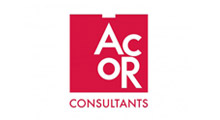
27 February 2023
NSW Remedial-Government consultation update | Exempt development
ACRA members on the Advocacy Working Group continue to work with the NSW Government on seeking clarity for the remedial sector working in Class 2 buildings. The immediate focus relates to understanding what typical remedial works require approval or whether they are deemed ‘exempt development’.
We are making progress. The consultation has been long, but rewarding and we are nearing the time when we can release detail of the progress to the ACRA Members. We thank the Advocacy team for their ongoing dedication and commitment.
Last week the Advocacy team met with the NSW Government’s Department of Customer Service and Department of Planning and Environment. This was our first opportunity to meet with the Department of Planning and Environment. Both departments acknowledge the challenges associated with the application of the SEPP (State Environmental Planning Policy [Exempt and Complying Development Codes] 2008 (SEPP) for remedial work.
We discussed the ‘remedial matrix’ (a document prepared to summarise typical remedial works) and the application of exempt work to those remedial works as it is presently defined in the SEPP. The Government has made a commitment to resolve the issues raised on behalf of our Members and the wider industry.
ACRA’s position is that remedial work is largely considered as normal repair and maintenance that reinstates the serviceability and durability of building elements. These works are generally ‘like-for-like’, but may also be an improvement to original, like a new window or balustrade, or replacing a deteriorated part, but fundamentally does not change the original architecture or adversely affect the structural capacity of the element. With these two constraints in mind, historically remedial works have been carried out as exempt development works, and we have presented the case that this long adopted approach should continue to apply. Naturally, with items where safety or structural adequacy is compromised, the works should reasonably be upgraded to meet with the current applicable BCA requirements.
It has also been acknowledged that running all remedial works through the current planning approval pathways would be burdensome on all parties, including the government, the private sector and in particular owners with increased costs and project delays.
The Government has made a commitment to resolving our current issues.
This week we expect Fair Trading to publish a new factsheet relating to emergency remedial works. This has been a significant piece of collaborative work and we will put out a special member information release around its publication.
Please be aware that the looming election means that caretaker mode is about to commence and that could prevent the release of additional material until after the March 2023 election. We will continue to work with Departmental staff throughout this period in supporting our consultation outcomes.
Final comments
It is important that Practitioners apply due diligence to current/upcoming remedial works. The Construct NSW reforms put the spotlight on the quality of building work and our industry’s responsibility to be trustworthy. Members need to be across their legal responsibilities and proactively engage with consultants, certifiers and customers to make sure everyone is on the same page. In particular, the over-arching planning requirements need to be considered in the context of ‘alterations and additions’ (which may require planning approval) as opposed to ‘like-for-like’ reinstatement of building elements or ‘minor’ building works.
You should always be in a position to substantiate the basis of your compliance with the regulatory requirements. Stakeholder engagement may involve coordination with at least the Design Practitioner, Building Practitioner, client and possibly other specialists to reach a considered and reasonable solution.
The NSW Advocacy working group will provide updates, as they continue to work with Government and when key milestones are reached. They look forward to providing an in-person update at the ACRA NSW event scheduled Friday 17 March 2023 click here to register. Thank you to the ACRA NSW Advocacy team: Deborah Lockart; Grahame Vile; Helen Kowal; Tom Mackay and Peter Johnsson.




















